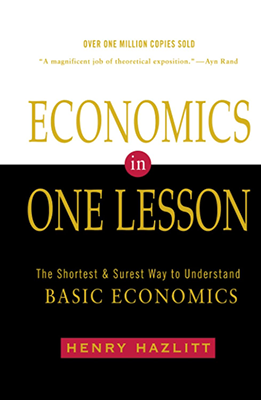Economics In One Lesson
“Economics in One Lesson” by Henry Hazlitt is a classic book that presents fundamental economic principles in a clear and accessible manner. Here’s a summary of its key points:
- The Broken Window Fallacy: Hazlitt begins the book by discussing the broken window fallacy, which illustrates the importance of considering the unseen consequences of economic policies. He argues that while some actions may seem beneficial on the surface, they can have hidden costs that outweigh the apparent benefits.
- The Law of Unintended Consequences: Hazlitt explores the concept of unintended consequences in economics, emphasizing the importance of considering both the immediate and long-term effects of policies and actions. He discusses how government interventions often lead to unintended consequences, such as distortions in markets and unintended incentives.
- The Role of Prices: The book delves into the role of prices in coordinating economic activity and allocating resources efficiently. Hazlitt explains how prices serve as signals of supply and demand, guiding producers and consumers in their decision-making and promoting the efficient use of resources.
- The Fallacy of Protectionism: Hazlitt discusses the fallacy of protectionism—the belief that tariffs and trade restrictions can benefit domestic industries and workers. He argues that protectionist measures often lead to inefficiencies, higher prices for consumers, and retaliation from trading partners, ultimately harming the economy as a whole.
- The Minimum Wage Debate: The book explores the minimum wage debate, discussing the unintended consequences of government-mandated wage floors. Hazlitt argues that while minimum wage laws may seem beneficial for workers on the surface, they can lead to unemployment, reduced job opportunities, and increased automation.
- The Role of Government: Hazlitt discusses the proper role of government in the economy, advocating for limited government intervention and free markets. He argues that government policies should be evaluated based on their adherence to economic principles, such as individual freedom, property rights, and voluntary exchange.
- The Fallacy of Government Spending: The book explores the fallacy of government spending as a means of stimulating economic growth. Hazlitt argues that government spending diverts resources from more productive uses in the private sector, leading to inefficiencies and crowding out private investment.
- The Importance of Savings and Investment: Hazlitt emphasizes the importance of savings and investment in fostering economic growth and prosperity. He discusses how savings provide the capital necessary for investment, which in turn leads to increased productivity, innovation, and higher living standards.
Overall, “Economics in One Lesson” provides a concise and insightful overview of fundamental economic principles and their practical implications. Whether you’re a student, policymaker, or interested citizen, Hazlitt’s book offers valuable insights into the workings of the economy and the consequences of economic policies.

